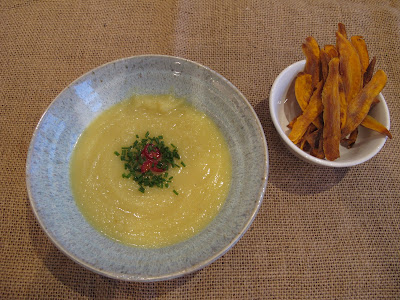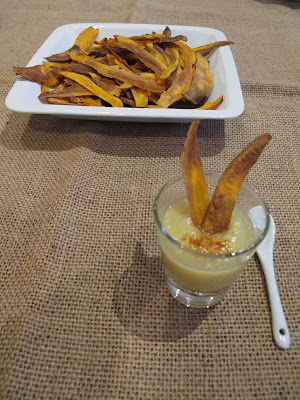Fat can be a dirty word for most people these days, thanks to the food industry. It gets a lot of bad press but I have some different news for you: we cannot live without it, our body needs fat! Fat is essential for the cell membranes and also as a source of energy. It protects our organs, provides insulation and enables important vitamins such as A, D, E and K to be made available to our body. Cooking with some of the saturated fats actually increases our absorption rate of vitamins and minerals.
Before I went to college to study naturopathic nutrition I was certain that fat makes you fat and saturated fat increases the risk of heart disease and raised cholesterol. But then I learned that these are nutrition myths, not truths! Cholesterol is needed to maintain intestinal health and also for brain and nervous system development in the young. Breast milk is extremely high in saturated fat and cholesterol.
The big problem is not the fat you eat but the type and the quantity of fat you choose to eat. The industry takes the good natural foods and manipulates them to become very unnatural. As long as you have a diet that contains lots of fruits, vegetables, wholegrains, nuts and seeds, butter, cold pressed oils, meat and eggs, eating fat in their natural way will not make you unhealthy. Man-made fats is what will make you ill! Remember, we are after a balanced diet!
Our ancestors enjoyed a diet of 'natural' fats as part of their optimum nutrition. In the beginning of last century, people would get their fat mostly from animal sources and much less from polyunsaturated oils and margarine. The incidence of heart attacks and cancer diseases were smaller, then. Only in the last 50 years, when science invented the trans-fats (in the form of margarine and man-made vegetable oils), the incidence of heart attacks and major diseases increased dramatically and obesity is still on the high. Did you know that when farmed animals need fattening all the fat from their diet is controlled and grains and cereals are increased? Makes you wonder, doesn’t it!
Most people are aware that fats come in different forms: saturated, monounsaturated, polyunsaturated. The simpler way to see it is that nature’s fats are found, for instance, in butter, cold pressed oils, fish, meat, eggs, chicken, coconut, olives, avocados, grains and legumes. Nature’s fats contain essential fatty acids that we need for our health as we cannot manufacture them.
Choices of good fats
- Omega 3 fats: flax seed, hemp seed and fish oils (which should be kept refrigerated), soaked nuts and seeds, oily fish, eggs.
- Monounsaturated fats/oils that contain most Omega 9s: avocado and cold pressed extra virgin olive oils.
- Natural and organic saturated fats: butter, ghee, coconut oil, extra-virgin palm oil (make sure of its provenance).
- Fats from organic grass fed animals: duck or goose, lard, meat, chicken.
- Polyunsaturated fats: such as cold pressed grape seed, groundnut/peanut and sesame oils are not bad for you, but they are very high in Omega 6, which is very high in most people’s diet already. I would recommend you increase more your Omega 3s in your diet instead.
If you don’t have time to cook, you may want to choose to take some healthy oils in supplemental form (for example: Omega 3s such as fish oils, flaxseed and hemp), as most people fail to consume sufficient amounts of this essential fatty acid. Remember, these oils are highly sensitive to heat and can become rancid and damaged very quickly. Do choose to buy an organic certified label, refrigerated, packed in dark bottles and keep them in your fridge when you are back at home!
These fats are not good choices!
- Trans-fats/hydrogenated and partially hydrogenated fats: such as margarines, baked goods, doughnuts, French fries. They are unnatural fats that your body won’t recognize as foods and are very hard to digest. They can increase LDL (“bad” cholesterol), blood sugar and blood pressure, create free radicals and cause many illnesses.
- Industrial processed liquid oils: such as canola/rapeseed, corn, safflower and soy, mostly oils you find in supermarket shelves, are very unstable when heated and get damaged quite rapidly. They are found in many processed foods. They also increase LDL and lower HDL. Make sure to read labels and avoid them whenever possible.
 |
| Ghee, butter, olive and coconut oil: some of the natural fats I use for cooking/baking/roasting |
I could write many more pages on the subject but, instead, I will link here to a more thorough post on vegetable oils , written by my old classmate and friend Chris Sandel, who runs 7 health practice. Check it out!
It is also worth a peak at these leaflets from the Weston A. Price Foundation website explaining trans-fats vs saturated fats, and the myths and truths about cholesterol in few bullet points: Transfats and cholesterol
Now, let's go to the kitchen.
Now, let's go to the kitchen.
 |
| The ingredients |
 |
| you can serve the soup as a starter |
 |
| or as an amuse bouche |
Parsnip soup with oven roasted sweet potato crisps
This is a great dish for this time of the year (Winter meets Spring), as parsnips are in season. The cayenne pepper and chilli have warming properties and ginger adds an extra zing.
INGREDIENTS
30 g butter
1 onion, chopped
1 clove garlic, chopped
a thumb sized fresh ginger, peeled and chopped
1 tsp turmeric powder
3 parsnips, peeled and chopped
1000 ml vegetable stock
sea salt and black pepper
sea salt and black pepper
1 fresh red chilli, de-seeded and finely sliced (optional)
cayenne pepper (optional)
chives (optional)
For the sweet potato crisps:
1 sweet potato
1 sweet potato
20g coconut oil
sea salt, cayenne pepper
sea salt, cayenne pepper
METHOD
Preheat oven to 190°C. Wash the sweet potato, cut into quarters, then cut it into thin long strips, using a potato peeler. Put them into a bowl and add the coconut oil (you may have to melt it before). Put the sweet potato strips in an oven tray
and bake them for 10 min. Keep an eye on it, as some may cook faster than others. Reserve.
and bake them for 10 min. Keep an eye on it, as some may cook faster than others. Reserve.
Peel the parsnips and cut into chunks. Melt the butter in a heavy-based pan, add the onion, garlic, ginger and turmeric. Gently fry until the onions are soft.
Add the parsnips and stir for about 5 minutes. Add the vegetable stock, bring it to the boil. Turn the heat down and let it simmer for 30 minutes.
Turn the heat off and, using a hand blender (or a normal blender), purée thoroughly. If you think the soup is too thick, add a bit of boiling water to achieve the consistency you want.
Season with sea salt and black pepper, then serve with the sweet potato crisps and garnish with red chilli and chives. Another option is to serve the soup in glass shots with the sweet potato crisps and a sprinkle of cayenne pepper.
The fats and their functional properties
Organic Coconut oil contains a fatty acid, called lauric acid, which is also found in mother’s milk and is often used in baby’s formulas. It has strong antimicrobial and antifungal properties. It has antiviral effects and has been tested against herpes. It is used therapeutically for cystic fibroids, AIDS and cachexia (in cancer patients). Researches and clinical observations have shown that coconut oil can prevent heart disease, high blood pressure, stroke, osteoporosis, diabetes; reduces epileptic seizures and increases metabolic rates. It supports overall immune functions.
The recommended daily dosage of coconut oil is 3 ½ tablespoons (approx 53ml), 198g fresh coconut meat or 295ml of coconut milk. I love adding it to my smoothies!
Organic Butter is a rich source of vitamin A, D, E and K. It contains an essential fatty acid called CLA (conjugated linoleic acid) that has demonstrated anticancer properties and has also been found to fight weight gain. Thirty percent of the fat from butter is from monounsaturated fats (the same type in olive oil). It has antiviral and antimicrobial properties. It is rich in the powerful mineral selenium.
Look for good quality butter, like raw and cultured. I have previously mentioned some suppliers here
-------------------------------------------------------------------------------------------------------
You should try and eat more natural fats and avoid the unnatural processed ones and this can make a huge difference to your health.
By understanding a bit more about fat, the body will be healthier and the food will taste a lot better. You’ll never need to be afraid of the “F” word again.





Outro post muito interessante and apetitoso, Margot. Parabéns!
ReplyDelete